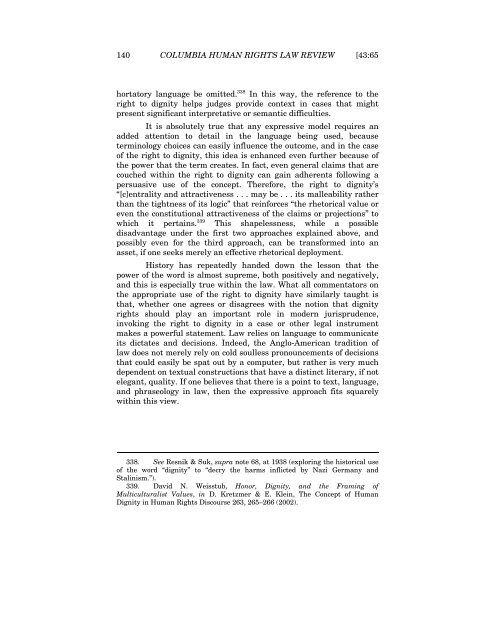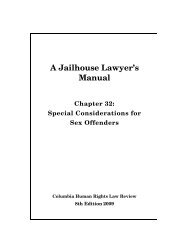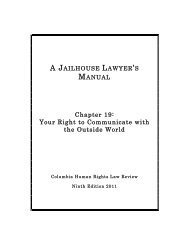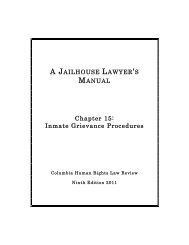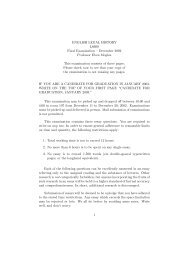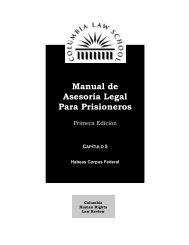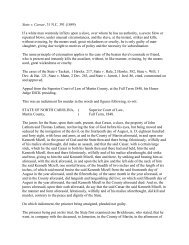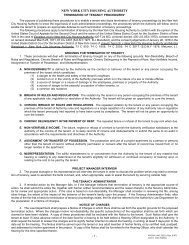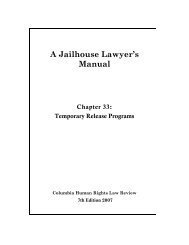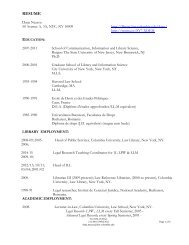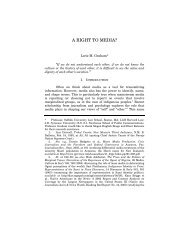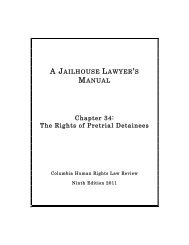The Right to Dignity Rex D. Glensy - Columbia Law School
The Right to Dignity Rex D. Glensy - Columbia Law School
The Right to Dignity Rex D. Glensy - Columbia Law School
Create successful ePaper yourself
Turn your PDF publications into a flip-book with our unique Google optimized e-Paper software.
140 COLUMBIA HUMAN RIGHTS LAW REVIEW [43:65<br />
horta<strong>to</strong>ry language be omitted. 338 In this way, the reference <strong>to</strong> the<br />
right <strong>to</strong> dignity helps judges provide context in cases that might<br />
present significant interpretative or semantic difficulties.<br />
It is absolutely true that any expressive model requires an<br />
added attention <strong>to</strong> detail in the language being used, because<br />
terminology choices can easily influence the outcome, and in the case<br />
of the right <strong>to</strong> dignity, this idea is enhanced even further because of<br />
the power that the term creates. In fact, even general claims that are<br />
couched within the right <strong>to</strong> dignity can gain adherents following a<br />
persuasive use of the concept. <strong>The</strong>refore, the right <strong>to</strong> dignity’s<br />
“[c]entrality and attractiveness . . . may be . . . its malleability rather<br />
than the tightness of its logic” that reinforces “the rhe<strong>to</strong>rical value or<br />
even the constitutional attractiveness of the claims or projections” <strong>to</strong><br />
which it pertains. 339 This shapelessness, while a possible<br />
disadvantage under the first two approaches explained above, and<br />
possibly even for the third approach, can be transformed in<strong>to</strong> an<br />
asset, if one seeks merely an effective rhe<strong>to</strong>rical deployment.<br />
His<strong>to</strong>ry has repeatedly handed down the lesson that the<br />
power of the word is almost supreme, both positively and negatively,<br />
and this is especially true within the law. What all commenta<strong>to</strong>rs on<br />
the appropriate use of the right <strong>to</strong> dignity have similarly taught is<br />
that, whether one agrees or disagrees with the notion that dignity<br />
rights should play an important role in modern jurisprudence,<br />
invoking the right <strong>to</strong> dignity in a case or other legal instrument<br />
makes a powerful statement. <strong>Law</strong> relies on language <strong>to</strong> communicate<br />
its dictates and decisions. Indeed, the AngloAmerican tradition of<br />
law does not merely rely on cold soulless pronouncements of decisions<br />
that could easily be spat out by a computer, but rather is very much<br />
dependent on textual constructions that have a distinct literary, if not<br />
elegant, quality. If one believes that there is a point <strong>to</strong> text, language,<br />
and phraseology in law, then the expressive approach fits squarely<br />
within this view.<br />
338. See Resnik & Suk, supra note 68, at 1938 (exploring the his<strong>to</strong>rical use<br />
of the word “dignity” <strong>to</strong> “decry the harms inflicted by Nazi Germany and<br />
Stalinism.”).<br />
339. David N. Weisstub, Honor, <strong>Dignity</strong>, and the Framing of<br />
Multiculturalist Values, in D. Kretzmer & E. Klein, <strong>The</strong> Concept of Human<br />
<strong>Dignity</strong> in Human <strong>Right</strong>s Discourse 263, 265–266 (2002).


